










8:00 AM Breakfast Social - Rever Hall of Fame Welcome attendees | Distribute swag
9:00 AM Welcome Remarks
• Jennifer Rice University of Maryland
• Kimberly Griffin University of Maryland
• Sheena Erete AIM; University of Maryland
• Ray Bell State of Maryland
9:30 AM Introduction to the Center for Educational Data Science and Innovation
• Jing Liu EDSI; University of
10:00 AM Keynote Address
•
10:30 AM Break
10:45 AM Lightning Talks
• Wei Ai
• Heather Hill Harvard Graduate School of Education
• David Blazer
• Tracy Sweet University of Maryland
• Carol Espy-Wilson University of Maryland
• Joel Chan University of Maryland
• Campbell Scribner University of Maryland
• Fengfeng Ke University of Maryland 12:00 PM Lunch
Transforming the Learning Feedback Loop: Teaching & Student Assessment at the Age of AI BREAKOUT SESSIONS PANELS
• Kelly Mix University of Maryland
• Michele Leardo Walton Family Foundation
Investing in AI Innovations: Perspectives from Funders
• Tyler Sussman
Chan Zuckerberg Initiative
• Jon Sotsky Overdeck Family Foundation
• Titilola Harley Bill & Melinda Gates Foundation
• Heather Hill Harvard Graduate School of Education
• Adam Geller Edthena
• Peter Youngs University of Virginia
• Mauro Nicolao SoapBox Labs
• Laura Stapleton University of Maryland
AI as a New Research Methodology for Education & Social Science Research
Preparing Students for an AI-Infused Future: CS/AI Education in K-12 Schools
• Greg Stoddard University of Chicago
• Marvin Mayorga Data Meaning
• Katie Wetstone DrivenData
• Elias Gonzalez University of Maryland
• Pat Yongpradit Code.org
• Quiana Bannerman University System of Maryland
• Cara Lesser KID Museum
• Neda Atanasoski University of Maryland
• Alyssa Ryan University of Maryland
Integration of AI in Higher Education: Opportunities & Challenges
Using AI in Classrooms: Educators’ Perspectives
• Brian Caffo Johns Hopkins University
• Jeff Forbes National Science Foundation
• Eric Pacuit University of Maryland
• Jared Joiner InterThesis
• Chris Irwin College Park Academy
• Samantha Booth Harvard University Center for Education Policy Research
• Heather LaDuca Montgomery County Public Schools
• Ovetta Sampson RightAI
• Richard Culatta ISTE+ASCD
• Amitabh Varshney University of Maryland
• Anne Kaiser Maryland State Delegate
9 : 00 – 9 : 30 AM
Welcome Remarks
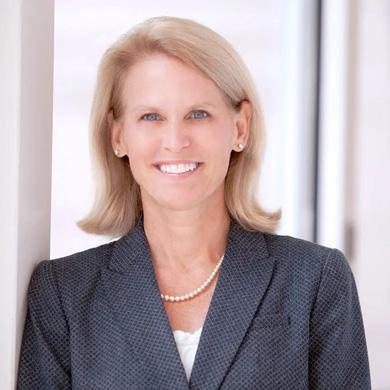
Jennifer Rice





Senior Vice President and Provost, University of Maryland
Jennifer King Rice is the University of Maryland's senior vice president and provost. As the chief academic officer, she steers the university's academic enterprise in accordance with its mission, including providing strategic direction for its 12 schools and colleges. An accomplished administrator and educator, Rice manages a diverse portfolio, including academic planning and programs, enrollment management, community engagement, faculty affairs, international affairs, academic innovation, and institutional research, planning and assessment. Rice's leadership is driven by her commitment to innovative and inclusive teaching, impactful research and scholarship, and work that advances the public good.
Kimberly Griffin
Dean of the College of Education, University of Maryland


Kimberly Griffin is Dean of the College of Education and a Professor in the Higher Education, Student Affairs, and International Education Policy Program at the University of Maryland. She is an educator, researcher, and leader committed to excellence, care, community, and equity. Dr. Griffin is driven by education's ability to make an impact in schools and communities and has worked tirelessly throughout her career to maximize the connection between research and practice. Much of her current research and writing focuses on mentorship, career development, and faculty and graduate student diversity. For the past four years, she has been named one of the 200 most influential education Education Week .
Product Director, State of Maryland
Ray Bell is the AI/ML Product Director at the State of Maryland where he is responsible for the product vision, strategy, and roadmap for AI/ML initiatives across Maryland. Ray has experience in implementing novel solutions to big problems in sectors such as Government, Hospitality, Defense as well as Oil and Gas. Ray has a PhD from the University of Reading, England and holds a Project Management Professional certification.

Sheena Erete
Associate Director of Research (AIM) and Associate Professor (INFO), University of Maryland
Sheena Erete is an Associate Professor in the College of Information at the University of Maryland, College Park, and the Associate Director of Research for the Artificial Intelligence Interdisciplinary Institute at Maryland (AIM). She is also the founder and director of the Community Research, Equity, and Design Collective (CREED). Dr. Erete's research focuses on co-designing socio-cultural technologies, practices, and policies with community residents to amplify their local efforts. Her work has addressed topics such as community safety, education, civic engagement, and health.
9 : 30 – 10 : 00 AM





Introduction to the Center for Educational Data Science and Innovation

Jing Liu Director, Center for Educational Data Science and Innovation; Associate Professor, Education Policy, UMD
Jing Liu's research focuses on K-12 education policy and how to leverage new advancement in AI and data science to improve learning opportunities for all students. He holds a Ph.D. in Economics of Education from Stanford University and is the Founding Director of the new Center for Educational Data Science and Innovation. He has received recognitions such as the Early Career Award from the Associate for Education Finance and Policy and the Exemplary Researcher Award from the University of Maryland.

Tara Behrend
John R. Butler II Endowed Professor of Human Resources and Labor Relations, Michigan State University
Tara Behrend is the John R. Butler II Endowed Professor of Human Resources and Labor Relations at Michigan State University, where she directs the Future of Work Initiative. Her research lab, the Workplaces and Virtual Environments Lab, focuses on the ways that emerging technologies can support workers in learning, developing, and connecting. She regularly advises policy and organizational leaders on topics relating to the use of technology in the workplace.
10 : 45 – 12 : 00 PM

Lightning Talks
Wei Ai
Assistant Professor, College of Information & Institute for Advanced Computer Studies, UMD
Wei Ai’s research develops end-to-end data science solutions that combine machine learning, causal inference, and field experiments. His current research focuses on using AI to identify, measure, and promote effective teaching practices in K-12 education.

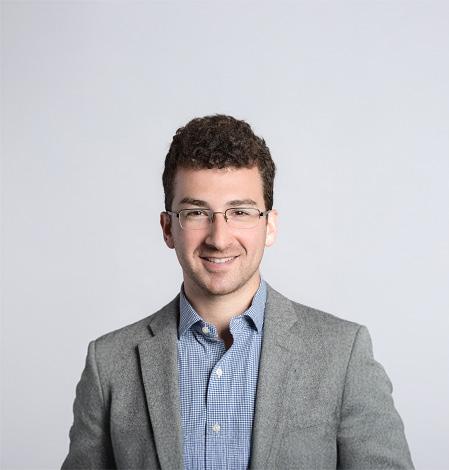

Heather Hill
Hazen-Nicoli Professor in Teacher Learning and Practice, Harvard Graduate School of Education
Heather C. Hill studies policies and programs designed to improve teacher and teaching quality, particularly in mathematics. She is an elected member of the National Academy of Education and the American Academy of Arts and Sciences.
David Blazar
Associate Professor, Education Policy, UMD
David Blazar’s research examines the efficient, effective, and equitable allocation of educational resources, focusing in particular on resources related to teachers and teaching. His current projects largely explore questions related to educator diversity.
Tracy Sweet
Associate Professor, Department of Human Development and Quantitative Methodology, UMD
Tracy Sweet’s research focuses on methods for social network analysis with particular focus on multilevel social network models. Recent projects include network interference, measurement error, and missing data.
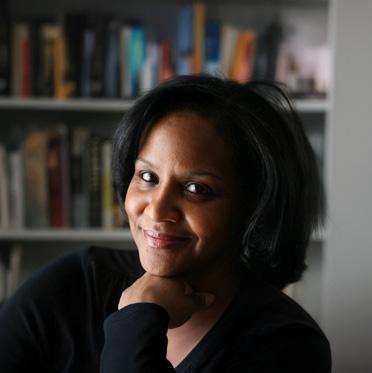
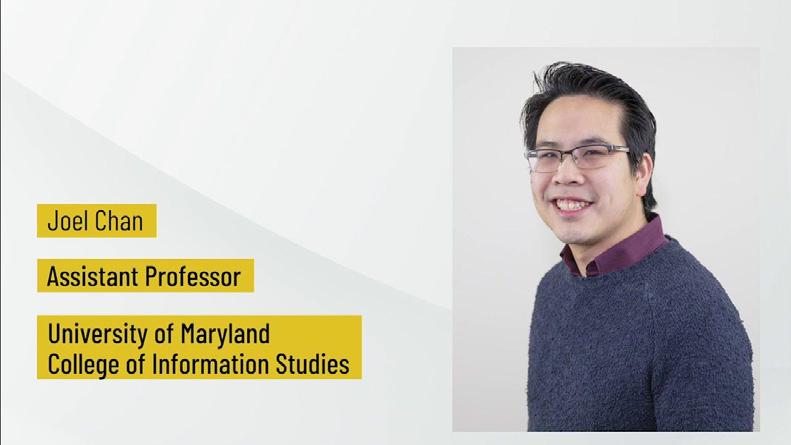

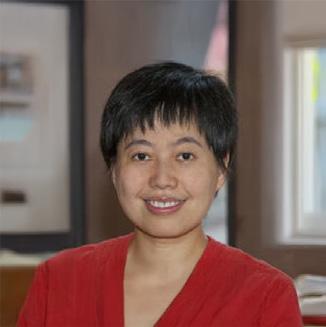
Carol Espy-Wilson
Professor, Electrical and Computer Engineering, UMD





Carol Espy-Wilson’s research combines knowledge of digital signal processing, speech science, linguistics, acoustic phonetics and machine learning to conduct interdisciplinary research in speech and speaker recognition, speech production, speech enhancement and single-channel speech segregation.
Joel Chan
Assistant Professor, College of Information; Associate Director, Human-Computer Interaction Lab, UMD
Joel Chan’s research and teaching explore systems that support creative knowledge work in domains such as design and scientific discovery.
Campbell Scribner
Associate Professor, Education Policy, UMD
Campbell Scribner's work centers on educational policy, history, and philosophy, specifically conflicting notions of democracy in American schools.
Fengfeng Ke
Clark Leadership Chair Professor, College of Education, UMD
Fengfeng Ke’s research focuses on the design and study of technology-driven personalized and enactive learning systems, with an emphasis on mathematics, science, and neurodiversity education.
1 : 00 – 1 : 50 PM
Breakout Session – Round 1


MODERATOR:
Kelly Mix
Professor & Associate Dean, College of Education, UMD
Kelly Mix is a professor of human development and currently serves as the associate dean for research, innovation and partnerships. Dr. Mix's research focuses on children's mathematical learning and interventions based on cognitive science principles.
PANELISTS:
Titilola Harley
Senior Program Officer, Bill & Melinda Gates Foundation
Titi Harley is a Senior Program Officer on the K–12 Education team at the Bill & Melinda Gates Foundation. In this capacity, she leads a portfolio of grants focused on improving the quality of math educational technology, emphasizing the strategic use of technology, especially AI, to improve the educational experiences and academic outcomes of all students, especially those who are Black, Latino, English learner-designated, and/or experiencing poverty.
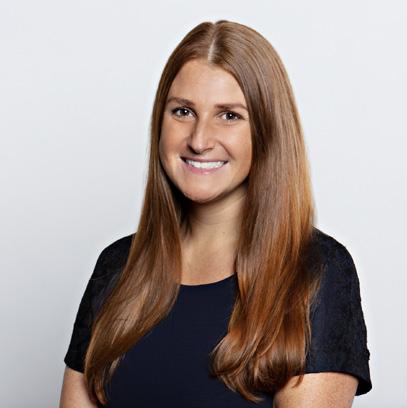
Michele Leardo
Program Officer, Walton Family Foundation





Michele Leardo is a program officer for the Education Program at the Walton Family Foundation. Michele currently leads WFF’s education technology and learning solutions portfolio which supports the creation and scale of effective tools that leverage emerging technology to accelerate student learning and better support teachers.
Jon Sotsky


Senior Director, Strategic Impact & Learning, Overdeck Family Foundation
Jon Sotsky, Senior Director, Strategic Impact & Learning at the Overdeck Family Foundation, brings over a decade of experience advancing social impact through data-driven and business-minded approaches. At the Foundation, Jon oversees impact measurement, research, learning, and the Data for Action grants portfolio. He serves on the boards of DataKind and Media Impact Funders.
Tyler Sussman
Senior Program Officer, Chan Zuckerberg Initiative
Tyler Sussman is a Senior Program Officer on the Education Initiative at the Chan Zuckerberg Initiative. He leads work focused on advancing open-source AI tools, enhancing edtech interoperability, and supporting co-design efforts with educators. A former high school teacher and instructional coach, Tyler co-founded the Summit Learning program and drives strategic partnerships to improve public-good education technology.
Transforming the Learning Feedback Loop : Teaching & Student Assessment at the Age of AI

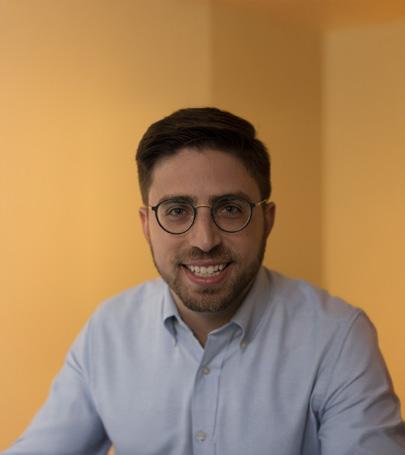

MODERATOR:
Heather Hill
Hazen-Nicoli Professor in Teacher Learning and Practice, Harvard Graduate School of Education
Heather C. Hill studies policies and programs designed to improve teacher and teaching quality, particularly in mathematics. She is an elected member of the National Academy of Education and the American Academy of Arts and Sciences.
PANELISTS:
Adam Geller
Founder, Edthena
Adam Geller is the founder of Edthena. Since 2011, Adam has overseen the evolution of Edthena from a paper-based prototype into multiple research-informed platforms for streamlining feedback to teachers: AI Coach by Edthena, an artificial intelligence-driven solution to guide teachers through coaching cycles; the Edthena VC3, a platform for classroom observation and collaboration using video coaching; and Edthena Organization Libraries, a platform for schools and districts to curate and share best-practice teaching videos.
Mauro Nicolao
Director of Data Science, SoapBox Labs
Mauro Nicolao is the Director of Data Science at SoapBox Labs, a Curriculum Associates company. He leads research efforts in developing AI features for speech technology and educational products. He has worked extensively in both academia and the private sector, including roles at the Italian National Council of Research and the University of Sheffield, UK. Dr. Nicolao's research focuses on automatic speech recognition, text-to-speech synthesis, and AI-enabled educational technologies.

Peter Youngs





Professor and Chair of the Department of Curriculum, Instruction, and Special Education, University of Virginia
Peter Youngs is a professor and department chair at the University of Virginia. His research interests focus on how policies related to teacher preparation, induction, professional development, and evaluation are associated with beginning teachers’ instructional practices, commitment, and retention. He currently leads a study of how neural networks can be used to (a) automatically classify instructional activities in video recordings of elementary mathematics and language arts lessons and (b) provide feedback to teachers on their instruction.
MODERATOR:

Laura Stapleton
Professor & Chair, Department of Human Development and Quantitative Methodology, UMD
Laura Stapleton is a Professor and Chair of the Department of Human Development and Quantitative Methodology at the University of Maryland. Her research focuses on the analysis of administrative data and survey data obtained under complex sampling designs, multilevel latent variable models, and tests of mediation within a multilevel framework.

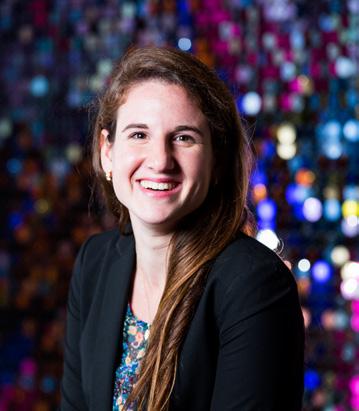
PANELISTS:
Greg Stoddard
Senior Research Director, Crime Lab & Education Lab, University of Chicago
Greg Stoddard is a Senior Research Director for the Crime Lab and Education Lab at the University of Chicago. He oversees a portfolio of projects related to policing, criminal justice reform, and education. His work blends techniques from data science and social science to help address challenging problems faced in public policy. Prior to joining the Labs, Greg received his Ph.D. in computer science from Northwestern University.
Katie Wetstone
Senior Data Scientist, DrivenData
Katie Wetstone is a data scientist with a passion for leveraging machine learning tools to promote sustainable, ethical, and just change. At DrivenData, she works to implement open-source machine learning competitions and direct consulting projects that support mission-driven organizations. Her projects have spanned a variety of issues including education, public health, and conservation. Prior to working at DrivenData, she developed educational curricula for K-8 science programming.

Marvin Mayorga
Co-Founder & Co-CEO, Data Meaning
Marvin Mayorga is the Co-Founder and Co-CEO of Data Meaning, a leading consultancy specializing in AI strategy, data governance, and analytics innovation. At the forefront of AI adoption, Marvin empowers organizations to unlock the full potential of their data by designing scalable, human-centered AI strategies. His work blends cutting-edge technology with practical frameworks that foster responsible innovation, data literacy, and long-term business impact.
1 : 55 – 2 : 45 PM
Breakout Session – Round 2





MODERATOR:
Elias Gonzalez


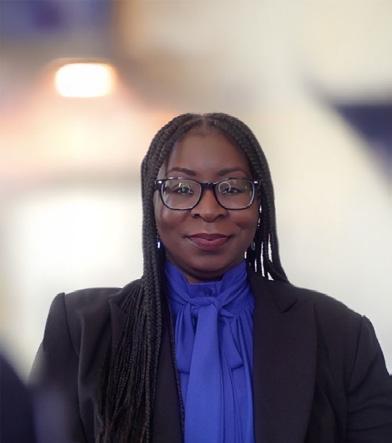
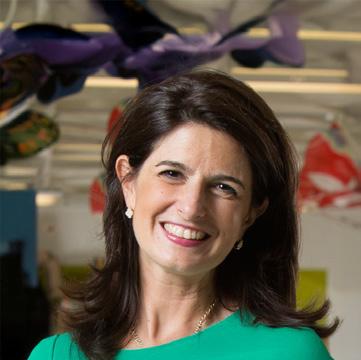
Lecturer in the Department of Computer Science and Curriculum Innovation Lead for Break Through Tech, UMD
Elias Gonzalez is a faculty member in the Department of Computer Science and Curriculum Innovation lead for Break Through Tech, working in the intersection of computing, and curriculum development. An alumnus of both the computer science department and the College of Education, he teaches a variety of introductory computer science courses on campus. Elias has previously worked in Teacher Development with Terrapin Teachers and as a High School computer science teacher in Montgomery County.
PANELISTS:
Pat Yongpradit
Chief Academic Officer, Code.org
Pat Yongpradit is the Chief Academic Officer for Code.org, a non-profit dedicated to promoting computer science education, and lead of TeachAI, a global initiative to guide education leaders in reimagining education in an age of AI. Pat has influenced each stage of the education system, from policy to practice, in the legislature and the classroom. He was featured in the book, “American Teacher: Heroes in the Classroom,” and has been recognized as a Microsoft Worldwide Innovative Educator. Although Pat now spends most of his time in policy conversations, he still finds ways to sneak into the classroom.
Quiana Bannerman
Director of the Maryland Center for Computing Education, University System of Maryland
Quiana Bannerman currently serves as the Director of the Maryland Center for Computing Education (MCCE) located within the University System of Maryland. Quiana has experience in teaching at the K-12 level and post-secondary level. She serves on local, state, and national committees that focus on computer science education. She has experience writing and reviewing standards for computer science. She is dedicated to empowering educators with the essential skills needed to equip their students with the knowledge and experience required to thrive in an ever-evolving technological society.
Cara Lesser
Founder & Executive Director, KID Museum
Cara Lesser is Founder and Executive Director of KID Museum, a nationally recognized nonprofit organization dedicated to building STEM and creative problem-solving skills through hands-on, maker learning experiences for students in grades K-12. With an intentional focus on equity and inclusion, KID works to ensure every student develops the tools to succeed in a rapidly changing world. Under Cara’s leadership, KID has grown from an idea into a leading center for innovation in teaching and learning. KID directly serves more than 30,000 individuals each year and supports schools and districts to implement effective hands-on learning techniques through curriculum and teacher training programs.






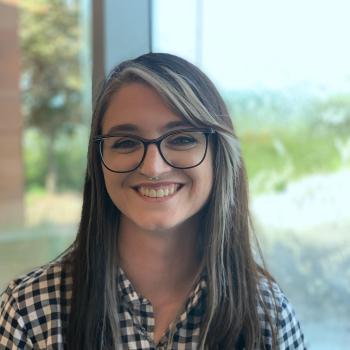

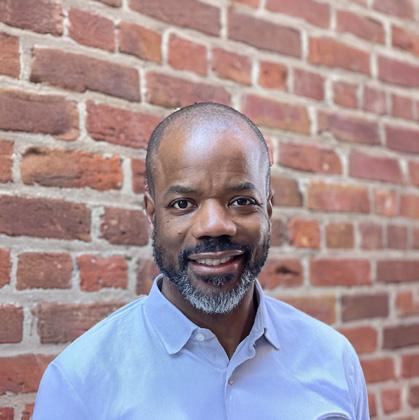
MODERATOR:
Neda Atanasoski
Professor and Chair of the Harriet Tubman Department of Women, Gender, and Sexuality Studies; Associate Director of Education (AIM), UMD
Neda Atanasoski is a Professor and Chair of the Harriet Tubman Department of Women, Gender, and Sexuality Studies at the University of Maryland, College Park, and Associate Director of Education for AIM. Her interdisciplinary research has focused on feminism and AI, feminist and critical race approaches to science and technology studies, AI and the future of work, militarism, and human rights and humanitarianism.
PANELISTS:
Alyssa Ryan
Program Director, Academic Program Operations (AIM), UMD
Alyssa is the Program Director, Academic Program Operations for the Artificial Intelligence Interdisciplinary Institute at Maryland (AIM). With expertise in academic program management and a passion for interdisciplinary collaboration, Alyssa oversees the development and coordination of academic programs that focus on the intersection of AI with other disciplines. Her research focuses on digital accessibility, particularly in accessible video games and video game technology, as well as technology inequity affecting marginalized and minoritized communities in the U.S.
Brian Caffo
Professor of Biostatistics, Johns Hopkins University
Brian Caffo is a professor in the Department of Biostatistics with a secondary appointment in the Department of Biomedical Engineering at Johns Hopkins University. He has worked in statistical computing, statistical modeling, computational statistics, multivariate and decomposition methods and statistics in neuroimaging and neuroscience. He co-directs the JHU Data Science Lab, a group dedicated to open educational innovation and data science. He is currently the co-director of the Johns Hopkins High Performance Computing Exchange super computing service center.
Jeff Forbes
Program Director, Education and Workforce, National Science Foundation
Jeff Forbes is a Program Director for the Education and Workforce program in the National Science Foundation’s Directorate for Computer & Information Science & Engineering (NSF CISE), managing programs that address the critical and complex issues of education and broadening participation in computing. Jeff was previously an Associate Professor of the Practice of Computer Science at Duke University. His research interests include computer science education, social information processing, and learning analytics.

Eric Pacuit
Professor, Philosophy, UMD
Eric Pacuit is a professor in the Department of Philosophy at the University of Maryland. Prior to coming to Maryland, Eric did his graduate work at the City University of New York Graduate Center in Computer Science, and was a postdoctoral researcher at the Institute for Logic, Language and Computation at the University of Amsterdam and in the Departments of Philosophy and Computer Science at Stanford University. Eric’s primary research interests are in logic (especially modal logic), social choice theory, game theory, formal and social epistemology, and problems that arise in AI and ethics.
MODERATOR:
Jared Joiner
Founder & Managing Director, InterThesis
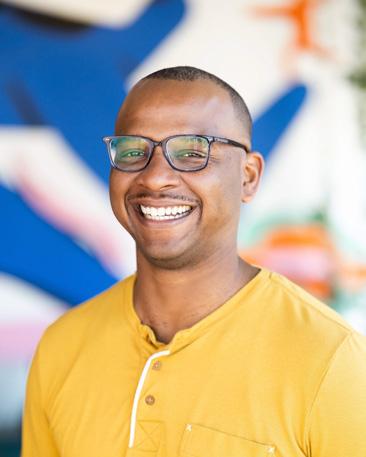
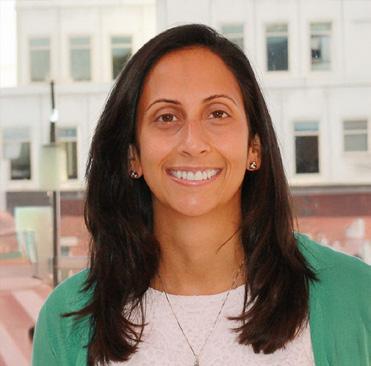







Jared Joiner has spent his career applying the sciences of learning and human development in research, classrooms, school district central offices, edtech startups, and philanthropy. Through InterThesis, he advises and consults for organizations working at the intersection of learning sciences, school improvement, and education technology, and he's currently launching a new organization — JOINERS — focused on cultivating civic purpose and community. Previously, Jared worked at CZI bridging the grantmaking and product teams to build edtech products grounded in the sciences of learning and human development and codesigned in partnership with youth, educators, researchers, and practitioners.
PANELISTS:
Samantha Booth
Director of the Mathematics Teaching and Teacher Learning Program, Harvard Center for Education Policy Research
Samantha Booth is the Director of the Mathematics Teaching and Teacher Learning Program at Harvard University’s Center for Education Policy Research. She is a former middle school math teacher and elementary school math coach. She is also a HGSE graduate from the Teaching and Learning, Instructional Leadership program. Her work is focused on research and development of professional learning for math teachers, particularly instructional coaching. She is currently working on a project to leverage machine learning automated measures and feedback in coaching.
Chris Irwin
Instructional Lead Teacher, College Park Academy
Chris Irwin is a dedicated educator and Instructional Lead Teacher at College Park Academy. With a passion for leveraging technology to enhance student learning and achievement, Chris focuses on innovative instructional strategies that drive engagement and academic success. He has presented on Blended Learning at the Digital Learning Conference (DLAC) and has played an instrumental role in assisting Prince George’s County Public Schools with piloting instructional technology initiatives. By blending digital tools with data-driven practices, Chris supports both students and educators in creating a dynamic, future-ready learning environment.
Heather LaDuca
Technology Implementation Specialist, Montgomery County Public Schools
Heather LaDuca is a Technology Implementation Specialist in the Department of Digital Innovation with Montgomery County Public Schools, supporting PreK-12 in integrating AI, esports, drones, robotics, 3D printing, and AR/VR into the curriculum. She leads initiatives that provide students with hands-on experience using emerging technologies while collaborating with educators to develop innovative, standards-aligned instructional strategies. Heather works on district-wide efforts, including AI policy development, teacher training, and community engagement, to ensure effective and equitable technology integration across all schools.
3 : 10 – 4 : 00 PM





Building Maryland's AI Future : Connecting K-12, Higher Education, and Workforce Pathways
MODERATOR:
Ovetta Sampson




Founder & Owner, Right AI
Ovetta Sampson, an AI and design expert, is the founder and owner of Right AI, which helps small and mid-size businesses navigate the increasing risk of adopting and deploying ML/AI. She provides strategy, comparative benchmarking research and technical architecture guidance that helps businesses implement AI in a responsible, compliant and ethical way. Ovetta was previously the Director of User Experience Machine Learning at Google, and she has held leadership roles at Capital One, Microsoft, and IDEO.
PANELISTS:
Richard Culatta
CEO, ISTE+ASCD
Richard Culatta is the CEO of ISTE+ASCD, leading efforts to support education changemakers to create equitable and engaging learning experiences for students around the world. He previously served as the Chief Innovation Officer for the state of Rhode Island and as the Executive Director of the U.S. Department of Education’s Office of Educational Technology under President Obama. He is the author of Digital for Good: Raising Kids to Thrive in an Online World .
Amitabh Varshney
Dean, College of Computer, Mathematical, and Natural Sciences, UMD
Amitabh Varshney is the Dean of the College of Computer, Mathematical, and Natural Sciences and a Professor of Computer Science at the University of Maryland, College Park. Varshney's research focus is on exploring the applications of high-performance computing and visualization in engineering, science, and medicine. He has worked on a number of research areas including visual saliency, summarization of large visual datasets, and visual computing for big data. He is currently exploring applications of virtual and augmented reality in several applications, including healthcare and telemedicine.
Anne Kaiser
Maryland State Delegate
Anne Kaiser is a legislator who represents District 14 in the Maryland House of Delegates. In Annapolis, she serves on the Health and Government Operations Committee and passionately advocates for working families, seniors, and students in Montgomery County and across the state. She was first elected to the Maryland House of Delegates in 2002 and has served as a Member of the House since 2003.





COLLEGE OF EDUCATION